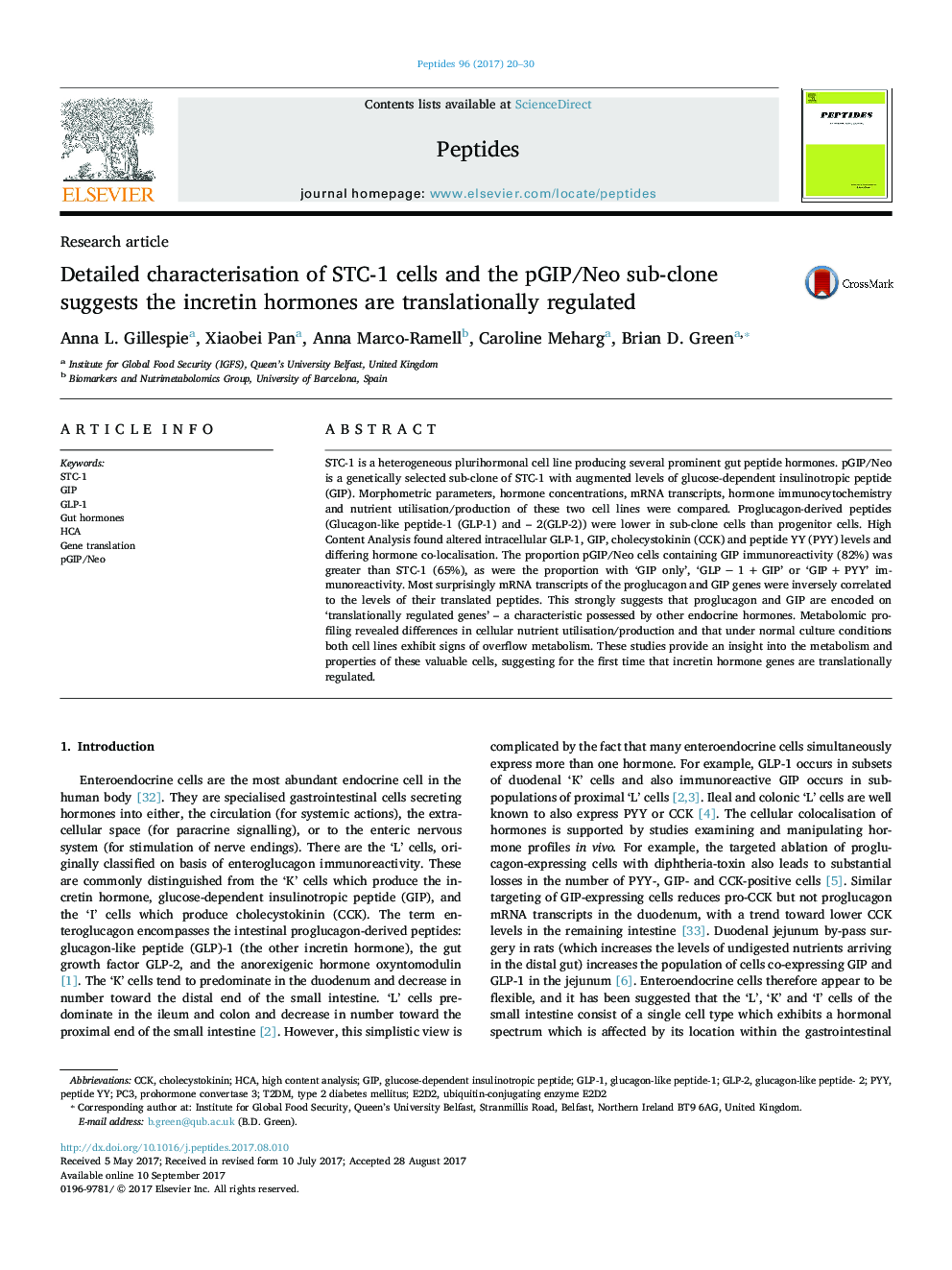| Article ID | Journal | Published Year | Pages | File Type |
|---|---|---|---|---|
| 5514785 | Peptides | 2017 | 11 Pages |
â¢pGIP/Neo cells are STC-1 cells transfected with a plasmid encoding the GIP promoter.â¢Glucagon-like peptide-1 (GLP-1) and GLP-2 were lower in pGIP/Neo cells than STC-1 cells.â¢More pGIP/Neo cells contained greater GIP immunoreactivity than STC-1 cells.â¢Proglucagon & GIP mRNA levels inversely correlated with their translated peptides.â¢This raises the possibility that incretin hormones are translationally regulated.
STC-1 is a heterogeneous plurihormonal cell line producing several prominent gut peptide hormones. pGIP/Neo is a genetically selected sub-clone of STC-1 with augmented levels of glucose-dependent insulinotropic peptide (GIP). Morphometric parameters, hormone concentrations, mRNA transcripts, hormone immunocytochemistry and nutrient utilisation/production of these two cell lines were compared. Proglucagon-derived peptides (Glucagon-like peptide-1 (GLP-1) and - 2(GLP-2)) were lower in sub-clone cells than progenitor cells. High Content Analysis found altered intracellular GLP-1, GIP, cholecystokinin (CCK) and peptide YY (PYY) levels and differing hormone co-localisation. The proportion pGIP/Neo cells containing GIP immunoreactivity (82%) was greater than STC-1 (65%), as were the proportion with 'GIP only', 'GLP â 1 + GIP' or 'GIP + PYY' immunoreactivity. Most surprisingly mRNA transcripts of the proglucagon and GIP genes were inversely correlated to the levels of their translated peptides. This strongly suggests that proglucagon and GIP are encoded on 'translationally regulated genes' - a characteristic possessed by other endocrine hormones. Metabolomic profiling revealed differences in cellular nutrient utilisation/production and that under normal culture conditions both cell lines exhibit signs of overflow metabolism. These studies provide an insight into the metabolism and properties of these valuable cells, suggesting for the first time that incretin hormone genes are translationally regulated.
